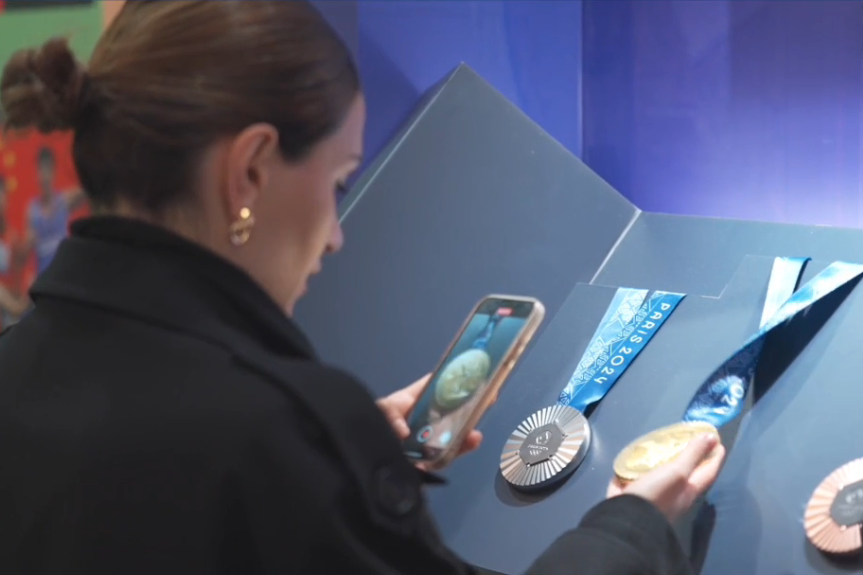Nepalese doctor in Shanghai: 20 years of growth and giving back

Walking through the "People's City" exhibition at the Shanghai Exhibition Center, Ashish Maskay felt a profound sense of connection. Among the 900 photographs and 353 real-world examples, he saw not just Shanghai's transformation over the past five years, but a reflection of his own journey.
Arriving in 2003 as a young surgeon from Nepal, he initially navigated the city with a red dictionary in hand, marveling at the towering Jinmao building, one of the few skyscrapers gracing the skyline at that time. "The China now and 2003 China are very different," he reflects.
Today, Maskay is the director of Shanghai expatriate healthcare and section chief of assistant surgeons at Shanghai United Family Hospital. His journey, however, has extended far beyond the operating room. Maskay is the founder of Bloodline, a nonprofit advocacy group connecting expats with children battling blood cancer, a testament to the community he found in Shanghai. His dedication to the city was recognized in 2020 and 2022, when he was respectively awarded the Shanghai Magnolia Silver Award and Shanghai Magnolia Gold Award.

Maskay's story is interwoven with the city's evolution. He recounts early struggles – navigating unfamiliar streets, the dearth of English signage, and the then-uncommon sight of a foreigner, especially in outlying districts. "They were so fascinated to see foreigners," he laughs, recalling children chasing him and his friend, shouting "Look, Laowai!" But alongside these challenges, he found kindness and a willingness to bridge the language gap with a smile and a helping hand. "My teachers and my other Chinese friends, colleagues, and so on, were extremely good to me," he recalls.
This spirit of helpfulness fueled his own desire to contribute. The creation of Bloodline, sparked by a critical need for a rare blood type for a French girl, epitomizes his philosophy: "When Shanghai cries, I cry. When Shanghai smiles, I smile." He sees the organization, with its diverse 3,000-plus members representing over 68 countries, as a microcosm of the city itself – a "mini United Nations" united in a common purpose.

He has witnessed firsthand the government's commitment to creating a "People's City", where feedback is not merely heard, but acted upon. He cites the example of raising concerns about inconsistencies in how foreigners' names were registered across different systems. To his surprise, his feedback sparked changes, including the creation of multilingual informational videos and the streamlining of processes.
"It's quite remarkable to see," he says, observing how these efforts have made the city significantly more welcoming to foreigners. He recounts encountering the Nepalese parliamentary delegation at the Hongqiao government office, where a display illustrated how residents' suggestions were collected and sent to Beijing. "It goes all the way up, all the way down," he remarks, impressed by the system's inclusiveness and efficiency.
Maskay believes technology plays a crucial role in enhancing residents' lives. He points to the seamless integration of digital tools – from food delivery apps to sophisticated medical technologies – that have become integral to daily life in Shanghai. He envisions a future where Shanghai leverages AI and digital advancements to further bridge cultural gaps, particularly in healthcare, suggesting the potential for medical tourism that combines top-notch treatment with immersive cultural experiences.
However, for Maskay, the essence of Shanghai goes beyond its impressive infrastructure and technological prowess. He compares the city to a "hot pot", where diverse cultures and individuals come together to create a vibrant, ever-evolving tapestry. He's particularly drawn to the symbolism of the magnolia flower, Shanghai's emblem, representing peace, unity, and a shared sense of belonging.
He carries this message of ownership and belonging to the younger generation, urging them to "have ownership, belong to the city, and don't just be a mister whoever in the city." He believes that embracing this spirit of shared responsibility and contributing to the city's growth is key to ensuring its continued success.
"True harmony and true, real world peace," he said, "comes from people mixing, from communication, from interaction."
His vision for Shanghai is a city where smiles are the universal language, where cultural barriers continue to dissolve, and where everyone feels a sense of ownership and pride in being a part of its ongoing story.


